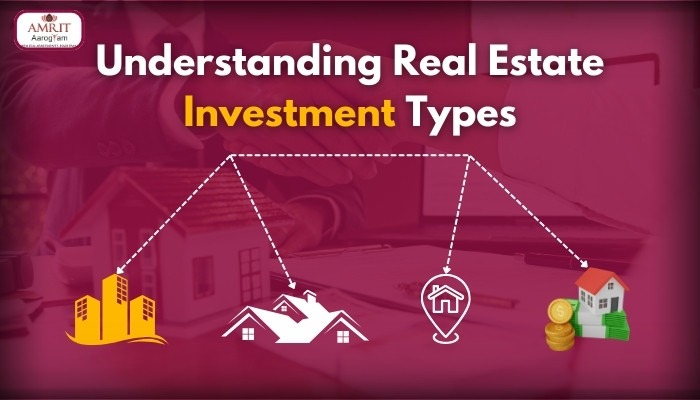
Top Residential Properties for Smart Investments

Discover the hidden gems of the real estate market with our list of top residential properties for smart investments now!
Welcome to the World of Real Estate! Have you ever wondered about houses, apartments, and all the different types of homes out there? Real estate is a fascinating world full of different properties waiting to be explored!
Why Learn About Residential Properties? Understanding the various types of residential properties can help us make better decisions when it comes to investing our money. By learning about different types of homes, we can figure out which ones might be the best for us and why.
"Investing in top residential properties is not just about financial gains, it's about securing your future."
Find out how you can make smart investments with our guide
Types of Residential Properties
When it comes to residential properties, there are several different types to consider. Each type offers unique features and benefits, making it essential to understand the differences before making an investment. Let's explore some of the most common types of residential properties:
Single-Family Homes
Single-family homes are standalone properties that house one family. These homes typically come with a yard and offer privacy and independence. They are a popular choice for many homeowners looking for a place to call their own.
Apartments
Apartments are units within a larger building that are rented out to tenants. They offer amenities such as shared facilities like gyms or pools. While apartments provide a sense of community and convenience, they may have limited space compared to single-family homes.
Townhouses
Townhouses are multi-level properties that share walls with neighboring units. They offer a balance between the privacy of a single-family home and the convenience of an apartment. Townhouses are often located in urban areas and provide a unique living experience.
Condominiums
Condominiums, or condos, are individual units within a larger complex. Owners of condos have shared ownership of common areas like elevators or fitness centers. Condos are known for their low maintenance and amenities, making them a popular choice for those looking for a hassle-free lifestyle.
Why Residential Properties Are a Good Investment
Steady Income
One of the reasons why residential properties make a good investment is the potential for a steady income. When you own a property, you can rent it out to tenants who will pay you regular rental payments. This consistent stream of income can help you cover the property's expenses and even generate additional cash flow for you.
Property Appreciation
Another benefit of investing in residential properties is property appreciation. Over time, the value of properties tends to increase. This means that if you buy a property today and hold onto it for a few years, its value may go up. This increase in value, known as appreciation, can potentially earn you a profit when you decide to sell the property in the future.
Tax Benefits
Owning residential properties can also come with tax benefits. The government offers various tax deductions and incentives for property owners. These deductions can help reduce your taxable income and save you money on taxes. It's essential to consult with a tax professional to understand the specific tax advantages available to you as a property investor.
Also Read - New Residential Projects in Haridwar
How to Analyze the Property Market
When it comes to investing in real estate, analyzing the property market is a crucial step in making informed decisions. By understanding market trends, considering the location of a property, and conducting a Comparative Market Analysis (CMA), you can increase your chances of success in the real estate market.
Understanding Market Trends
Market trends refer to the patterns and movements in the real estate market that can impact property values. By keeping an eye on market trends, such as supply and demand, interest rates, and economic indicators, you can anticipate changes in property values and make strategic investment decisions.
Location Matters
The location of a property plays a significant role in its value and potential for appreciation. Factors such as proximity to amenities, schools, public transportation, and job opportunities can all influence the desirability of a location. It's essential to research and choose a location that aligns with your investment goals and has the potential for growth.
Comparative Market Analysis (CMA)
A Comparative Market Analysis (CMA) is a valuable tool for understanding the current market value of a property. By comparing similar properties that have recently sold in the same area, a CMA can help you determine a property's fair market value. This information is crucial for negotiating offers, setting rental prices, and making informed investment decisions.
Also Read - Ultimate Property in Haridwar Near Ganga
Investment Tips
Start Small
When it comes to investing in residential properties, it's a good idea to start small. Begin with a single property or a small number of units to gain valuable experience in the real estate market. By starting small, you can learn the ins and outs of property management, tenant relations, and maintenance without taking on too much risk. This approach allows you to build a solid foundation of knowledge and confidence, which can be invaluable as you expand your portfolio.
Do Your Homework
Before diving into any real estate investment, it's essential to do your homework. Research different properties and locations thoroughly. Look into market trends, property values, and potential rental income. Assess neighborhood amenities, crime rates, and local economic conditions to gauge the long-term viability of your investment. By being well-informed, you can make smarter decisions and avoid potential pitfalls in the real estate market. Comprehensive research can also help you identify emerging markets and opportunities that might offer higher returns.
Budget Wisely
One of the most important aspects of real estate investment is budgeting wisely. Set a realistic budget that takes into account not just the purchase price of the property, but also ongoing expenses like maintenance, property taxes, insurance, and potential vacancies. Factor in costs for any necessary renovations or upgrades. Stick to your budget to ensure that your investment remains profitable in the long run. Creating a financial buffer for unexpected expenses can also help you manage your investment more effectively and avoid financial strain.
Consider Financing Options
When planning your real estate investment, it’s crucial to explore and understand your financing options. Determine how much capital you need and assess whether you will be using personal savings, securing a mortgage, or seeking alternative financing methods. Evaluate different mortgage rates, loan terms, and lender requirements. Additionally, consider the impact of financing on your cash flow and return on investment. Properly managed financing can enhance your investment's profitability and help you leverage your assets effectively.
Build a Network
Building a strong network can significantly benefit your real estate investment journey. Connect with real estate agents, property managers, contractors, and other investors. Networking can provide you with valuable insights, advice, and opportunities that might not be readily available through conventional channels. Engaging with a network of professionals can also help you navigate challenges more effectively and make informed decisions based on collective expertise and experience.
Conclusion
In this blog post, we've explored the fascinating world of residential properties and real estate investments. Understanding the different types of residential properties is crucial for making smart investment decisions that can yield positive returns in the long run.
Recap
We discussed single-family homes, apartments, townhouses, and condominiums, each offering unique advantages and considerations for investors. Additionally, we highlighted why residential properties are a good investment, citing steady income, property appreciation, and potential tax benefits.
Furthermore, we delved into how to analyze the property market by understanding market trends, choosing the right location, and utilizing Comparative Market Analysis (CMA) to assess property values accurately. Our investment tips emphasized starting small, conducting thorough research, and budgeting wisely to maximize investment potential.
Final Thoughts
As you embark on your real estate investment journey, remember that knowledge is power. Keep learning about residential properties, stay informed about market trends, and seek advice from experienced professionals. Investing in real estate can be a rewarding and lucrative venture if approached with caution and diligence.
Frequently Asked Questions (FAQs)
What is the best type of residential property to invest in?
When it comes to investing in residential properties, the best type for you depends on your investment goals. Single-family homes are great for long-term appreciation and stable rental income. Apartments can offer higher rental yields but may require more maintenance. Townhouses are a good middle ground between single-family homes and apartments, typically offering a balance of space and affordability. Condominiums are popular for their amenities and lower maintenance requirements. Consider your budget, risk tolerance, and investment timeline to determine the best type of property for your needs.
How much money do I need to start investing in real estate?
Starting to invest in real estate doesn't always require a large sum of money. Some options, like real estate crowdfunding platforms or real estate investment trusts (REITs), allow you to invest with smaller amounts. However, if you're looking to purchase a property outright, you'll need to consider factors like the property's price, down payment requirements, closing costs, and potential renovation expenses. It's essential to assess your financial situation, explore different investment options, and create a budget that aligns with your goals.
How do I know if a property is a good investment?
Assessing whether a property is a good investment involves considering various factors. Look at the property's location, neighborhood amenities, rental demand, and potential for appreciation. Conduct a comparative market analysis (CMA) to understand the property's value compared to similar properties in the area. Evaluate the property's condition, potential renovation costs, and rental income potential. Additionally, consider the property's financing options, potential tax benefits, and your long-term investment goals. By thoroughly researching and analyzing these factors, you can make an informed decision on whether a property is a good investment for you.












